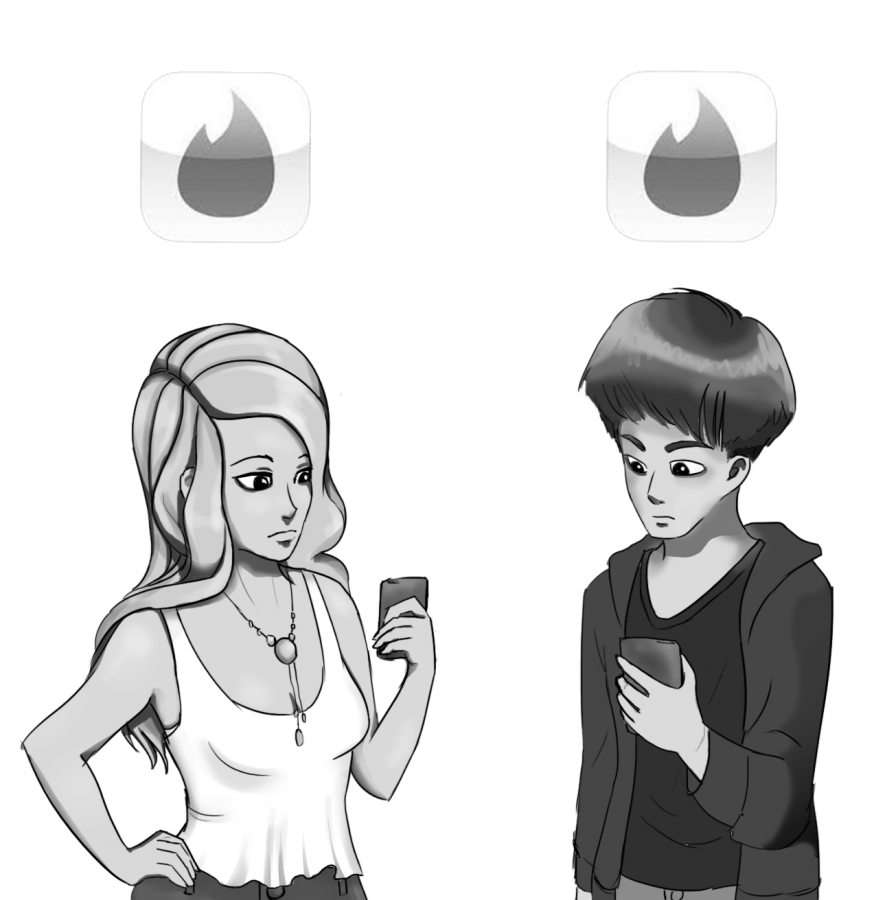All Disney movies have happy endings. The prince gets the princess, the frog turns human and that little dragon thing gets his pedestal back. Sorry for the spoilers, but it’s nothing that hasn’t been heard before now.
The unfortunate truth, however, is that not all relationships are as clean cut as Disney depicts them.
In fact, today’s culture has given birth to a new kind of relationship-building tool that Disney has completely failed to acknowledge: tech dating.
Dating sites such as eHarmony and Match, as well as dating apps like Tinder and OkCupid, create relationships that, for the most part, are doomed to fail. They advocate going on dates without highlighting important qualities that can only be discovered in person; making it far too easy for users’ fairytale endings to evade them.
Even before the Internet, people have looked to third parties to help them find love. Be they professional matchmakers or friends who set up blind dates, the desire for help to find their other half has proven that people are comfortable putting their love lives in the hands of another.
With the rise of the Internet, this concept became all the more popular. Match.com, created in 1995, was the first online dating service. It cut out the middle-“ man,” and replaced him with a machine.
At the time, this practice appeared to make the experience of assisted dating more personal. However, Internet sites circumvent the most important steps in building relationships: human contact.
“When we meet individuals or groups for the first time, we mostly evaluate two metrics: trustworthiness and confidence,” said Rob Capps, writing for Wired Magazine in November of 2012.
By taking away the element of human interaction, online dating services prevent people from gauging these qualities. Instead, sites throw complete profiles in users’ faces, making them feel more like stalkers than anything else. Switching from the traditional method of meeting someone and gradually learning more about them gives the users of these sites an unintended bias to the people they find. This bias can increase the chances of customers letting someone they could have made a personal connection with slip through the cracks.
Online dating further takes the romance out of dating. Before the Internet era, people used to meet each other by chance, which created adorable little stories for couples to tell their friends on their wedding day. When a person wanted to contact their date, they would write love letters. These letters took great deals of thought and were a surefire way of showing that someone cared for them. With the invention of online dating and instant messaging, this has disappeared.
Now, instead of courting each other with emotional notes, two people can chat and have a conversation about themselves over text in a matter of minutes. This depletes dating of perhaps its most classic quality: romance.
The personal connections that were created through communication are lost when now all one has to do is swipe right and politely inquire for the other user’s “kik.”
Online dating is also disappointing.
“When you are searching for a date, it’s a lot easier to find a suitable match if you have a large pool of potential dates,” social science teacher Kelly Aull said.
While it might be easier to initially find this match, he or she still has to reply, which may take a while. A September 2009 article from OkTrends – an OkCupid dating research website – reports an average reply rate of 24% to introductory messages. This means users who contact twenty people receive an average of five replies, which can be heartbreaking. The sorrow that accompanies putting oneself out there on a large, public scale is a major push factor when singles consider signing up for online dating platforms.
In fact, there are a lot of stigmas that go hand in hand with online dating. An opinion that dissuades many prospective users is the thought that online dating is a “second-tier” type of dating. A backup plan. A last resort. This stereotype is carried through and leads to people’s judgement of others, and themselves.
The institution has come to be viewed as a way of admitting defeat in the world of dating. Though, this admission is certainly not the same as giving up.
No matter what is said about online dating, it is still a legitimate way to meet people.
“[Online dating is] especially [good] for people who have a hard time meeting new potential dates,” Aull said.
If someone is busy or does not go out much, then online dating is a much more convenient option. It also helps raise standards: when people look through profiles online, they will have an idea of their “perfect match,” and strive to find somebody who fits their description. By supplying a guilt-free shopping-for-dates experience, online platforms allow customers to pick and choose the users that interest them. The downside to this is users become focused on their vision of a nonexistent human-embodiment-of-perfection. They reject anyone who doesn’t meet their qualifications. In reality, these Internet users may find perfection in qualities they didn’t know they were looking for; qualities that were scrolled past in the chase of a daydream.
Internet dating has become impossible to ignore as a viable option for meeting someone. Riddled with problems, stigmas and drawbacks, the industry retains an unshakable popularity in today’s culture. As it becomes less discredited, online dating can escape its negative connotation and establish a respected image. Though it might not be very Disney, online dating can still lead to a happy ever after.









